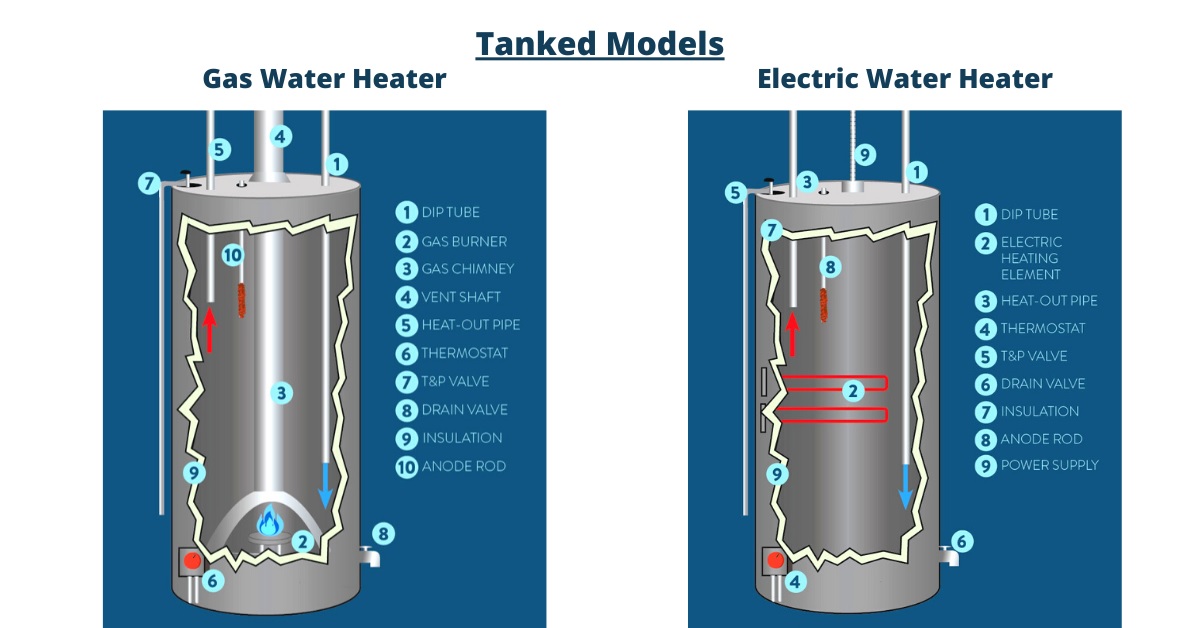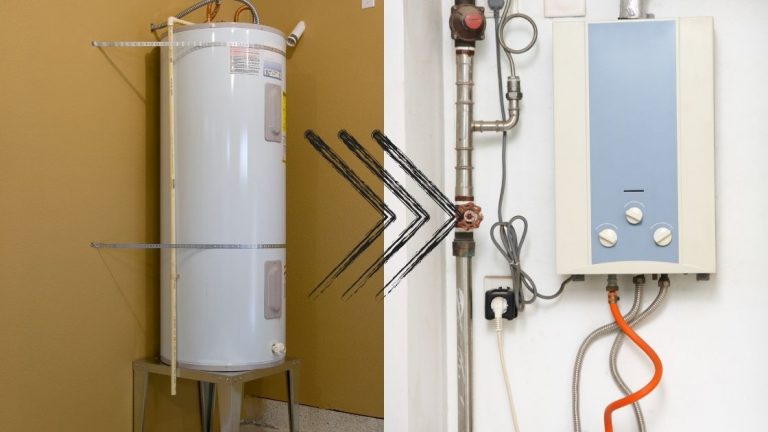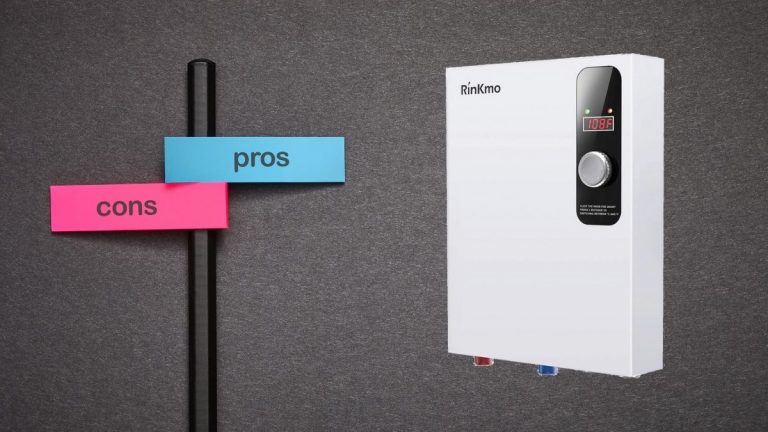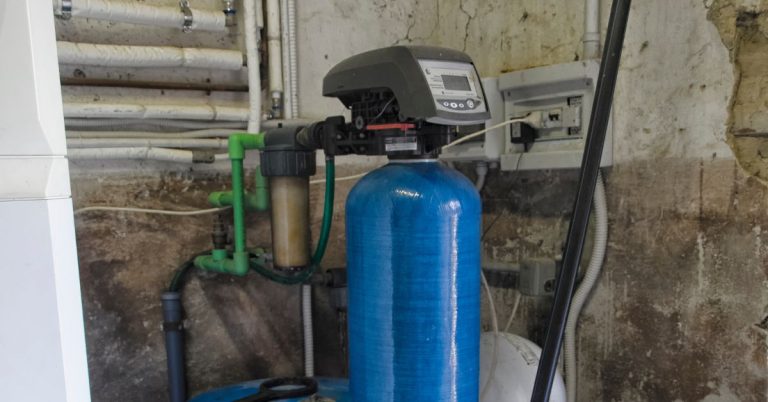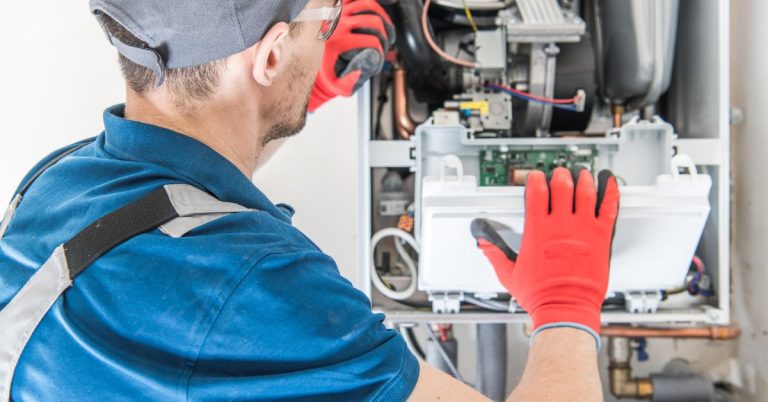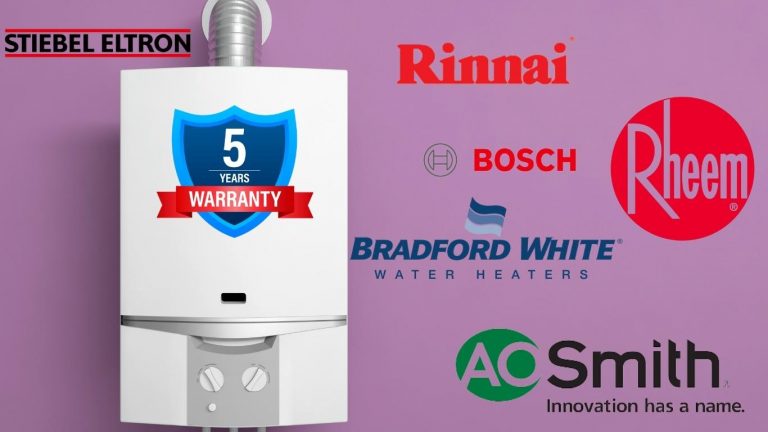Which is Better: Gas or Electric Water Heater?
Maybe you are looking to replace your old water heater or want to consider all available options for your new home. So gas or electric, which water heater is best suited for you? Let’s try to find it out.
It doesn’t matter in which case you fit, but what does matter is to understand which water heater type; either gas or electric will be most economical and better suited for your hot water needs.
What’s coming now is the complete guide that will navigate you through both types of water heaters. We will first talk about how these water heaters work, then the various expenses related to installation, the overall cost of monthly operation, its maintenance, and then safety issues and other viable options available to you, and much more. At the end of this article, you will have a clear understanding of which water heater will be ideal for your family’s needs, safety, and budget as well.
So let’s get started, shall we?
First, how do gas & electric water heaters work?
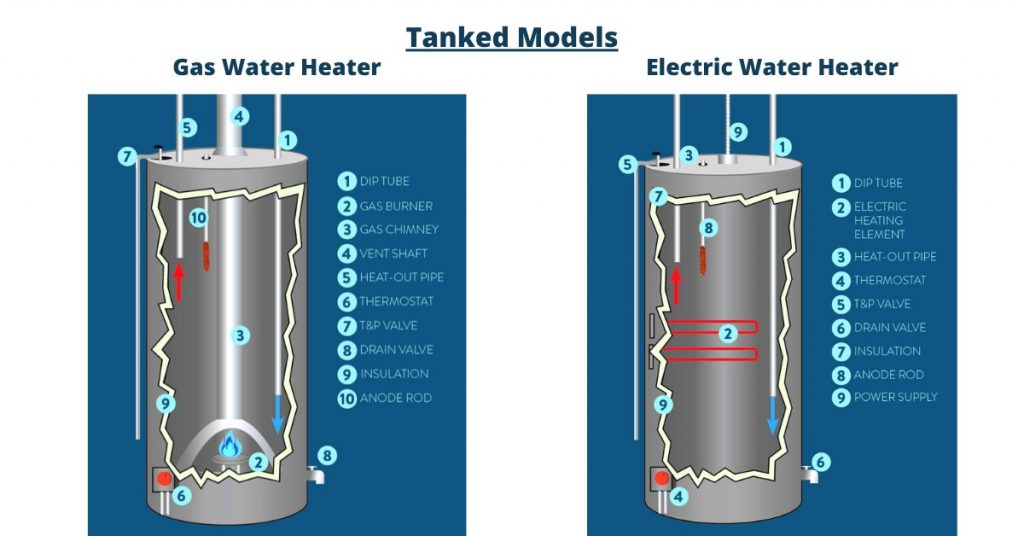
Let’s keep the explanation simple. The electric water heater has a pretty straightforward work mechanism. It uses electrical energy to heat the heating element inside the water tank. This element then comes in contact with water which then gets heated. The hot water then rises and reaches your required faucet and showerheads.
Gas water heater on the other hand, as the name suggests, uses natural gas (or propane) to fire the burner which then heats the entering water. It has the minimal use of electricity to ignite the gas burner and to run the circuit board of the heater.
There’s this rating with water heaters, called input, which measures the amount of electricity or gas is used to heat the water in the tank in an hour. It also basically tells us how fast the water gets heated. The higher the number, the faster the water gets heated.
The BTU is a unit used for gas water heater input and watts for electricity based.
Normally for gas water heaters, BTUs range from 30K to 180K, which also depends upon the size of the heater tank.
For an electric water heater, the range is between 1440 – 5500watts. The higher wattage, the faster water heats.
Fuel availability
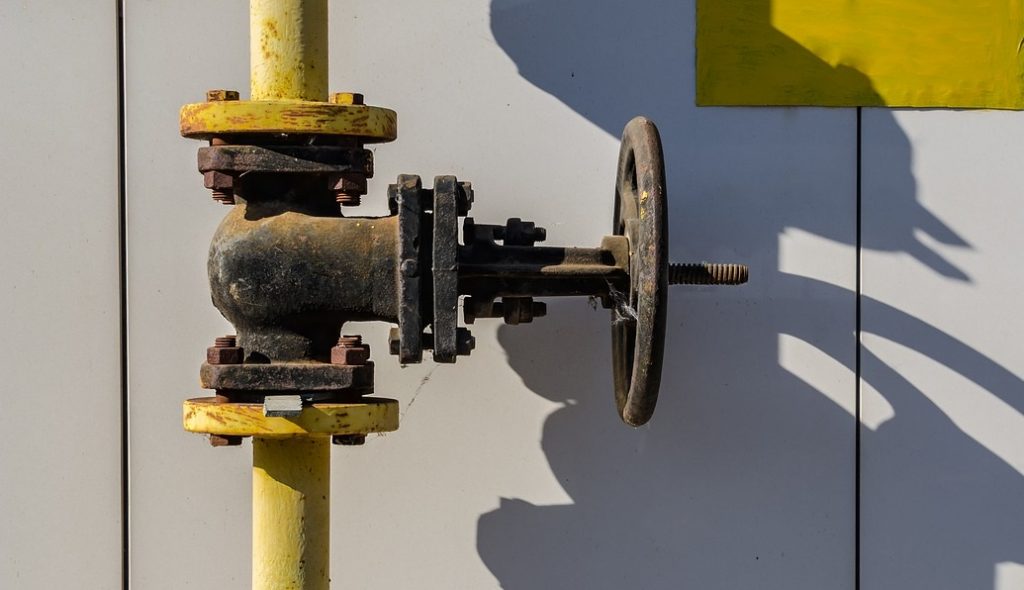
When deciding whether you want a gas or electric water heater, it’s obvious that you will consider the availability of fuel in your home or area.
Almost all houses have access to electricity but comparatively less to natural gas. So if you are planning to go with a gas water heater then you will need to have a gas line installed (which can get expensive).
Also, you will want to consider the fuel price. Now, this goes in the favor of gas water heaters. In most places across the US, natural gas is cheaper compared to electricity so your monthly gas bill in fact can be lower than electricity.
Initial investment

The overall cost of a water heating unit and its installation is one of the major deciding factors when it comes to choosing between gas and electric water heater.
It is important to understand that the electric water heater can be cheaper to buy and install, compared to a gas water heater since they are less complicated. An electric water heater can cost anywhere from $300 to 700$ or higher. Then add up another $700 to $1000 for wiring and installation (charges depend upon the complications of installation at your home).
So overall initial investment for an electric water heater can go anywhere from $1000 to $1700. However, if you are replacing your old electric water heater then there’s not a lot of work, and installation charges can come down.
Gas water heater, on the other hand, can be a little tricky. A gas water heater unit can cost anywhere between $400 to $800. You will then have to add up another $1000 to $2000 for installation. Installing a gas water heater is expensive because you need to install a gas line, make a vent to exhaust gas which could require drilling and cutting in your home.
If you are replacing your old gas water heater then the installation can get cheaper as there will already be a gas line, vent and not many tools and work will be needed.
Another point to make here is that; Are you switching from one technology to another?
What I mean is, if your old water heater was gas-powered and you are planning to replace it with an electric type, then in such a case, installation shouldn’t cost much.
On the contrary, the thing will be different if your previous water heater was electric type and you plan to replace it with a gas water heater. Since you will have to run the gas line to this location and will have to make a vent, the installation can take a long and get expensive.
Cost of operation
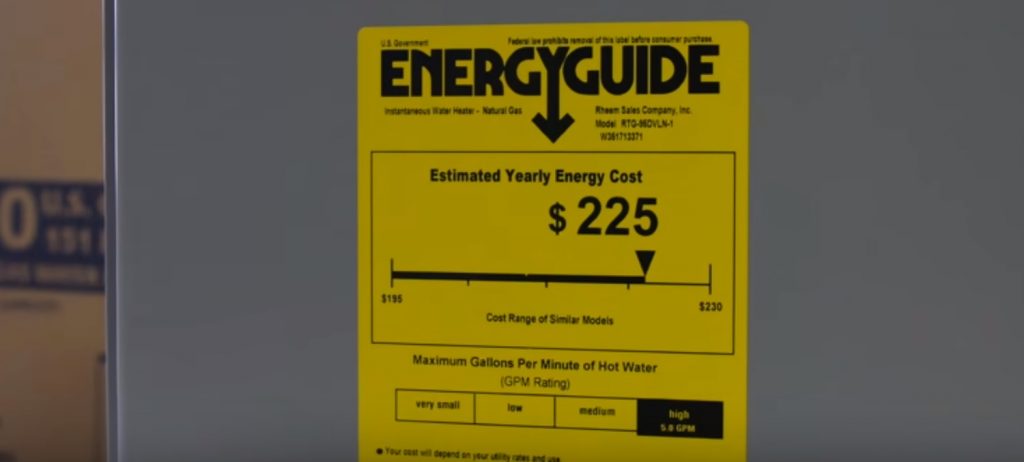
Now that we have discussed the upfront expenses of both types of water heaters, it’s best if we also understand how much it will cost you in the monthly energy bill.
According to the US Department of Energy, water heaters account for 18% of household energy bills in the US.
Natural gas is cheaper compared to electricity so it’s reasonable to consider that gas water heaters will cost lower to operate. But gas water heaters are also less efficient compared to electric counterparts (However, the condensing gas water heater also exists that are more efficient).
If we go by the statistics, the monthly cost of gas for a gas water heater for the average US household is around $30.
On the other hand, the electric water heater, in the average household will cost around 42$ in the monthly electric bill.
The size
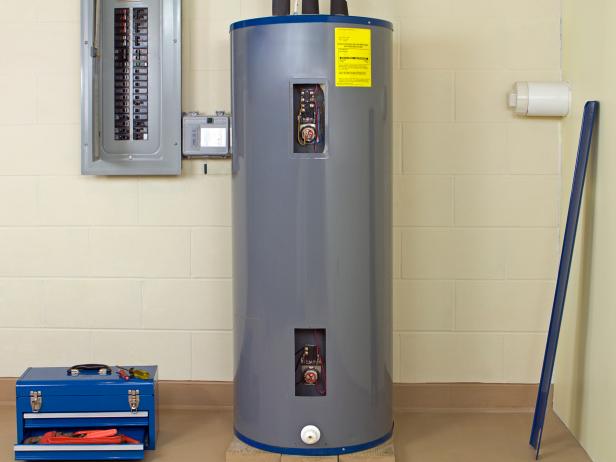
The water heater can occupy a lot of space in your home depending on the type of model installed.
An electric tank water heater will take less space compared to a gas tank water heater because there’s no need for venting.
On the other side, you can also go with tankless (also known as on-demand or limitless water heaters). The electric tankless water heater is so much compact compared to the tank counterpart and it can even fit under your kitchen sink or bathroom cabinet.
Gas tankless water heaters are hard to fit at such a location as you need venting to release gas out of your home.
Maintenance required?
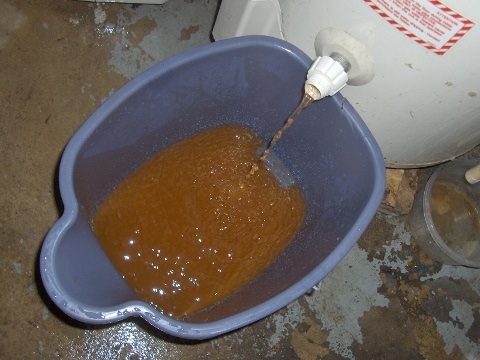
Maintenance is essential for any appliance if it’s to be kept in good working condition to last it longer.
The important question is how frequent the maintenance is required and how much it will cost? And can you maintain by yourself or need professional?
Depending on the type of water at your home (soft or hard), both gas and electric water heater require annual or biannual maintenance to flush out the sediments that get collected over time. If not flushed for a prolonged period, the sediments can damage and negatively impact the lifespan of the appliance and you will have to buy new ones sooner. You can also install a water softener to slow the progress of sediment collection.
Also with gas water heaters, there’s extra care that needs to be taken care of like the gas particles start to collect on the vent which also needs to be cleaned. The gas lines should be monitored regularly for leakage etc.
Safety concerns

With an electric water heater, the mechanism is simple. It has electrical connections and water incoming and outgoing components. It’s a straightforward system that poses minimal safety issues.
With gas water heaters, the situation is different. Along with electric heater components, it also has a gas line connected.
So that comes with additional responsibilities of regular checking and monitoring of gas leakage. While the gas water heater explosion is a real thing, it rarely happens. But it’s best to stay on the safe side.
Environmental impact
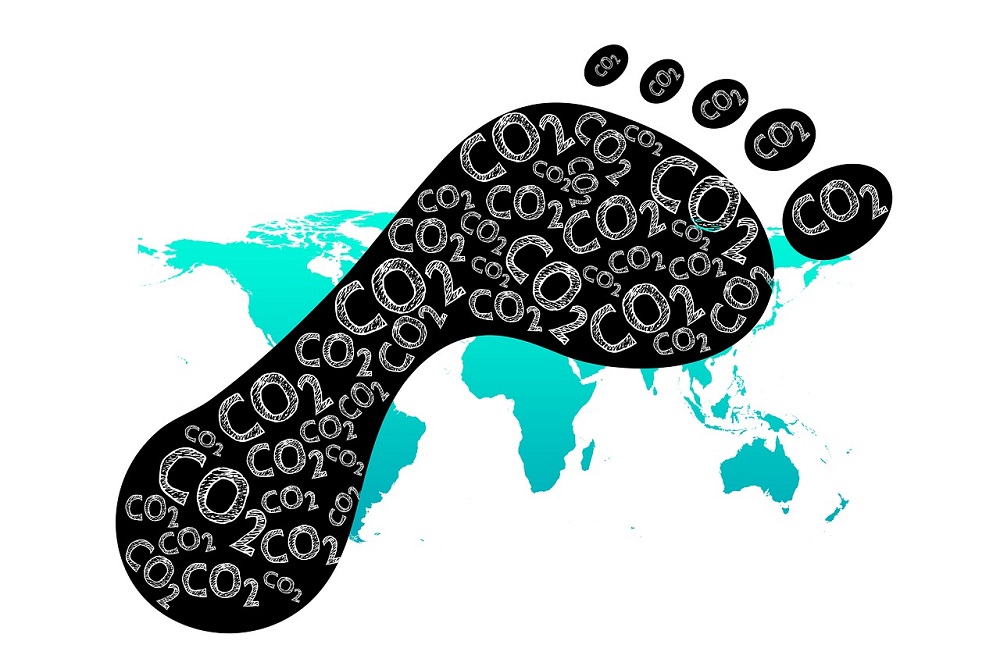
If you are a person who is conscious of leaving a carbon footprint and negatively impacting the environment then you will want to learn more about this aspect.
Since gas water heater burns natural gas, it’s only obvious that it will exhaust greenhouse gases in the environment. So the gas water heaters are not much of environment friendly.
Electric water heaters operate solely on electricity which can be sourced from renewable sources like wind, and hydrodynamic. Electric-type doesn’t release any form of greenhouse gas in the environment and thus is more environmentally friendly.
Next-generation options to consider
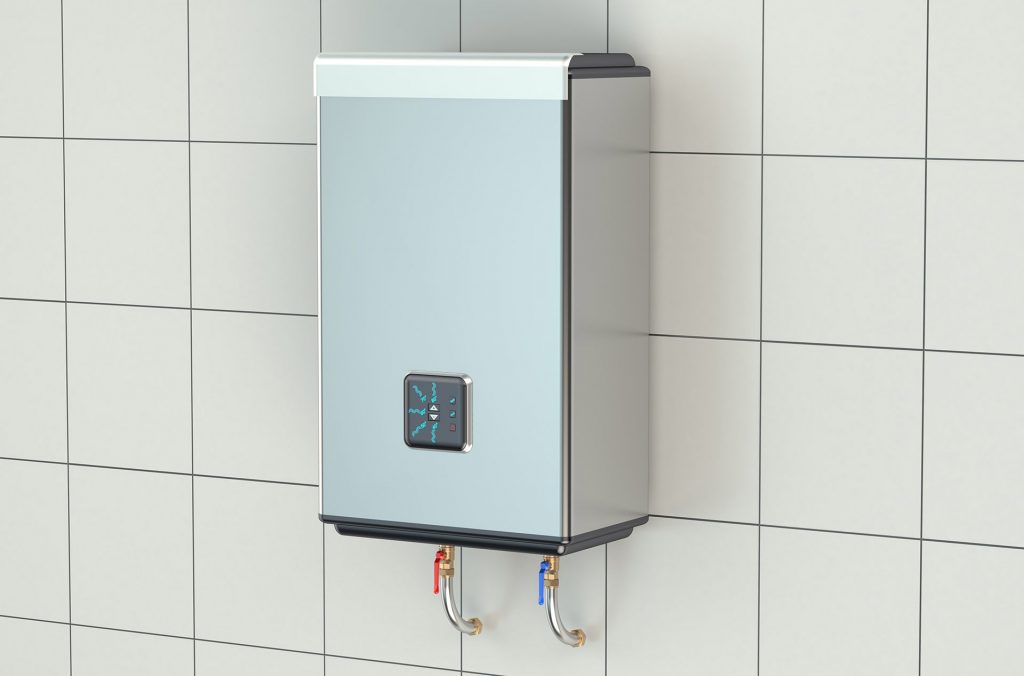
So far we have assumed the tank water heaters in our conversation.
As good as tank water heaters are, there are some drawbacks to them including lower lifespan which is in the range of 8-15years, eats up a lot of space, there’s a limited amount of hot water that you can draw after which you will have to wait for next tank of water to get heated and also they are not very energy efficient.
Tankless water heater technology is revolutionary. Since there’s no tank, the unit is smaller and which saves you a lot of space that can be used for other things.
The tankless water heaters heat the water instantly and so you get access to unlimited hot water and don’t run out of it like in-tank situations.
Tankless water heaters are highly energy efficient. As per Energy.gov, tankless gas or electric water heaters are roughly 24% to 34% more energy efficient compared to conventional tank water heaters. One of the reasons is because tank water heaters keep the tank filled with hot water 24hrs, which when not in use sits there getting cold and thus loss of energy.
Tankless only uses energy when there’s a need for hot water and thus there’s minimal loss.
Tankless water heaters have a higher lifespan of 15 to 25 years.
However, the thing with tankless water heaters is that they can be expensive compared to conventional types. You might have to pay 100$ to $200 more for tankless.
Another thing is flushing the sediments which is an important part of maintenance to keep the heater working and efficient for long period. With a tank water heater, all you have to do is drain the tank to remove the sediments. With a tankless water heater, you may need to call professionals, annually or biannually, to flush and maintain the unit. It may cost upto $150 depending on where you live.
Learn more here in this complete water heater buying guide.
FAQs
Is it cheaper to run a gas or electric water heater?
It depends on the fuel price in your area. In most places, natural gas is cheaper compared to electricity and as such the operating cost of a gas water heater is also lower than an electric water heater.
However, the gas water heaters can be expensive to buy and install but the savings you make over the years can make up for it.
So yes, gas water heaters are cheaper and money-saving in long run.
Do gas or electric water heaters last longer?
To be honest, it more depends on whether the heater is a tank or tankless rather than what fuel it runs on.
Tank water heater, whether it is gas-powered or electricity, is known to have a lifespan of 8 to 13 years.
Tankless water heaters, on the contrary, can last twice as long as tank water heaters. Its lifespan range from 15 to upto 25 years.
Which is safer gas or electric water heater?
With gas water heaters, you have to check for gas leakage and have to maintain regularly to avoid any incident.
Electric water heaters, on the other hand, are much safer because there’s no dealing with gas lines or anything.
Is gas hot water better than electric?
If we were to talk about which type heats the water fast then the gas water heater is the winner. It also works uninterrupted in areas with power outage problems and most have a low operating cost.
So yes, gas water heaters seem to be a better choice but they are not so good for the environment and releases greenhouse gases.
Conclusion
Hopefully, you have got some clarity on which is a better water heater: gas or electric.
Let me make it simpler for you. If you are shopping for a water heater for your new home and have access to a gas line or there’s a problem with a power outage in your area then going for a gas water heater is a fine choice. Although initial installation cost is higher, you will save on monthly energy bills as well as have access to hot water even during a power cut.
Or if you don’t have access to the gas line, you previously had an electric water heater or there’s no issue of a power outage then going for an electric water heater is a sound choice. Switching from electric water heaters to gas water heaters can get expensive.
There are also tankless water heater options available in both gas and electric fuel type which are more energy-efficient and provide unlimited hot water. You should also check out this post about the best electric tankless water heaters for the whole house here.

